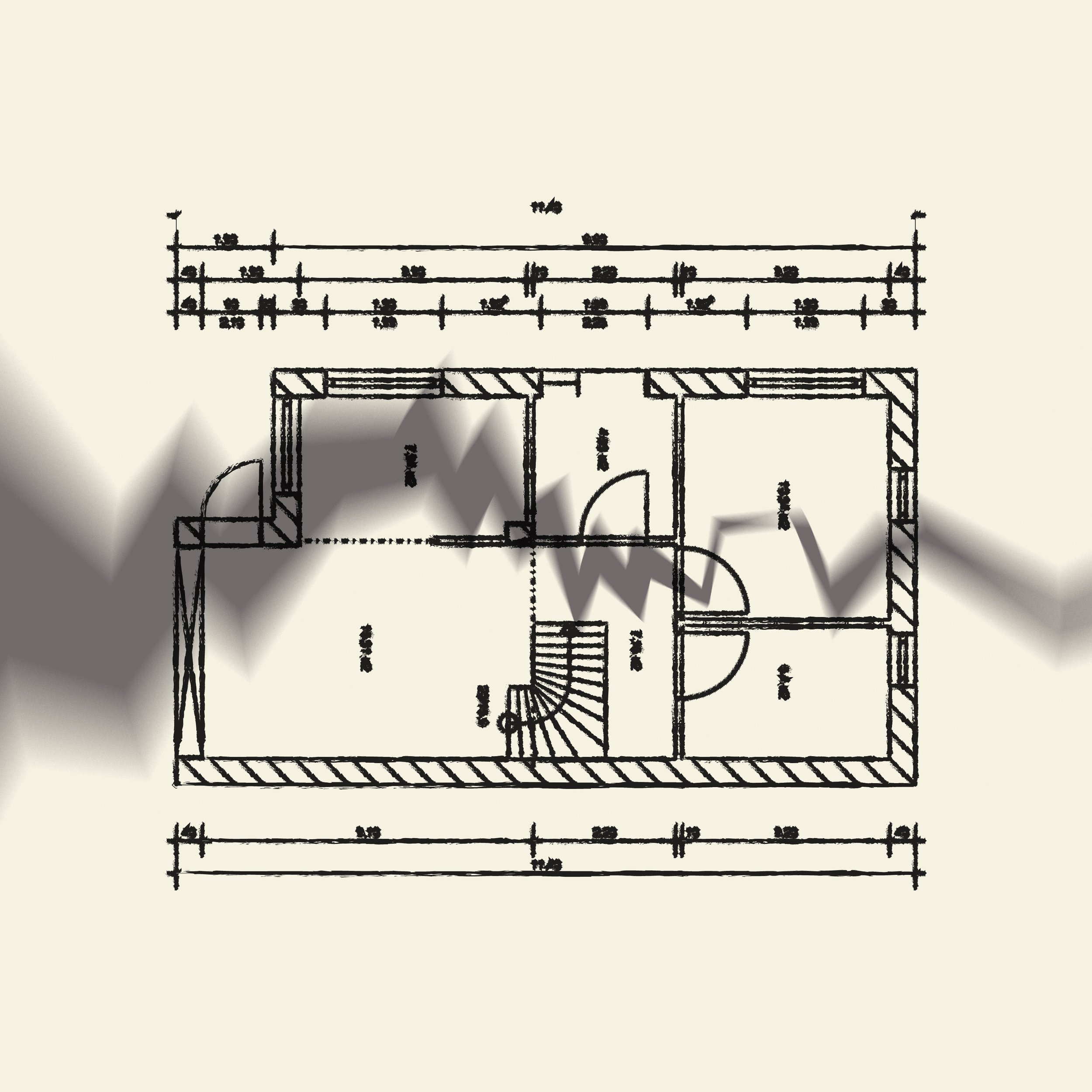Reserve Areas
Turkey has expropriated ancestral lands to build “earthquake-proof” housing.
MARCH 12, 2024
When Habip Yapar received a text message informing him that the ownership of his two homes in Samandağ was being transferred to Turkey’s Ministry of Treasury and Finance without his consent, he was in shock.
Samandağ, a district of the Hatay province in southern Turkey, experienced widespread devastation following the earthquakes of Feb. 6, 2023. But the urban center of the district, where Yapar’s homes are located, was among the areas that emerged practically unscathed.
“It is the only place that is standing — the only place that did not sustain damage,” Yapar told me over the phone. Nevertheless, his apartments were among the 500 properties the government designated a “reserve area” through a new amendment. Passed last November, the amendment enables the government to seize residential areas it determines to be at risk of disaster.
Led by President Recep Tayyip Erdoğan, the ruling Justice and Development Party, or AKP, has used laws pertaining to urban renewal and earthquake risk in the past as a pretext to profitably redevelop run-down areas in neighborhoods of Istanbul inhabited by low-income and disenfranchised groups. Now residents of southern Turkey fear that this new law will displace them.
The new legislation threatens to uproot minority communities, furthering a systematic process of demographic engineering that has been operating for a decade.
According to government designation, “reserve areas” will be the site of future earthquake-proof housing. Concretely, this means that existing homes in the areas must be demolished and the residents displaced. As the journalist Bahadır Özgür has explained, even if a person’s building is structurally solid, in the event that it is declared a reserve area, all of their property rights are suspended.
Hatay province, which includes cities like Samandağ as well as the provincial capital Antakya, is home to a diverse population. This includes Arabic-speaking Alevis, who adhere to a heterodox faith not officially recognized by the Turkish state. There are smaller communities of Greek Orthodox Christians, too, and Vakıflı, the only remaining Armenian village in Turkey, is also in Hatay.
Thousands of people from Samandağ, Antakya and other parts of Hatay either continue to live in tents and containers in the area or have left for other provinces after the earthquakes, which killed more than 50,000 and displaced an estimated 3 million.
The new legislation threatens to uproot minority communities, furthering a systematic process of demographic engineering that has been operating for a decade. Apart from the hundreds of properties in Samandağ that were expropriated, 207 hectares of land in Antakya and the neighboring district of Defne have been declared reserve areas. The Hatay Bar Association has estimated that because of the new legislation, 50,000 people will be dispossessed of their property.
✺
The fight over Hatay began in 2012, when the AKP-led government passed a law regarding municipal designations. The law put in place a vast urban restructuring of the area, creating new districts out of what were previously neighborhoods or towns.
According to Emre Can Dağlıoğlu, an Antakya native and doctoral candidate in history at Stanford University, the government used that designation to carry out ethno-sectarian gerrymandering. Dağlıoğlu, who studies the area, explained in an email that the significant Alevi populations in the districts of Antakya and İskenderun were reorganized into new districts to change the electoral scheme. The largest Alevi neighborhood of İskenderun was incorporated into the town of Arsuz that year. Likewise, Defne, a predominantly Alevi neighborhood in Antakya, was separated from Antakya and established as a district.
Examining the electoral map reveals that by isolating these groups, the AKP government secured more votes in new areas. Neighborhoods with strong support for the rival Republican People’s Party, or CHP, were cut off from larger districts. The numbers indicate that the CHP would have won Antakya in the 2014 elections if the area had not been redistricted.
Locals fear that such redistricting may be at work as the Turkish government struggles to rebuild in the aftermath of the disaster. According to the new amendment, property owners will be compensated via a figure determined by the government, but many are afraid compensation will be far below actual property value.
Last February, the earthquakes damaged several apartments that Gülay Yüksek’s relatives owned in Defne. The building where they were located was taken over and demolished by the state a month after the earthquake. Yüksek’s family members, dispersed throughout different areas of the country, have since come back to rent apartments in their hometown. They learned that their property had been declared reserve areas after news reports in November showed the specific areas in Defne and Antakya that were designated as such. Yüksek and her family are entirely in the dark about the fate of their property. Authorities have not provided them with any information. Although the law about reserve areas states that property owners will receive financial compensation, Yüksek and her family have not. She said over the phone that the area in Defne where her family’s former homes were located has been closed off to traffic by the authorities, and construction vehicles have begun working, but locals still do not know what is going on.
On January 19, owners of two buildings in Defne that sustained moderate damage within the reserve area were informed less than a day in advance that their buildings were to be demolished, according to a report in a local newspaper earlier this year.
Hasan Çilli, a doctor from Samandağ who lost his home in the earthquake, is now living with his wife and son in the southern province of Mersin. Çilli’s family owns three large single-story buildings in central Samandağ. He told me over the phone that the buildings were not damaged and the shops inside them are open. And yet, sometime around October of last year, Çilli’s aunt received a text message saying that ownership of the property was being transferred to the treasury.
For Yapar, local politics may also be at play. He said the Ministry of Environment and Urbanization declared his property a reserve area before the amendment had even been passed in the Turkish parliament. When he received the text message informing him of the fact, he called the local ministry, which told him that the mayor had received the consent of Samandağ constituents regarding the matter.
In December, Samandağ’s Mayor Refik Eryılmaz and Deputy Minister of Environment and Urbanization Vedad Gürgen held a meeting in Samandağ. They denied that there was any effort to displace the population, and said 8,000 new homes needed to be built in Samandağ due to the vast destruction. “We are thinking about the public interest,” Gürgen said at the meeting. “We are not confiscating anyone’s property.” Yapar and other property owners boycotted the meeting, claiming it was held for show and that they were not invited directly. They noted that the money they have been offered is far lower than what their property is worth. Yapar said that experts appointed by the government who surveyed the area determined the land to be worth 8,000 Turkish liras ($257) per square meter when the actual value is nearly 250,000 liras per square meter.
The journalist Burcu Özkaya Günaydın had been living in central Antakya for five years before she and her husband lost their home in the earthquakes. For the first three months after the quakes, they stayed in a tent, and then they moved into a 20-square-meter (24-square-yard) container, from which she has reported on the dispossession, including Yapar’s story.
“People are worried that even if homes are built, they won’t be given to them.”
She explained that while many anticipate that Turkey’s Housing Development Administration will build on the reserve areas, the people of Hatay fear that if they are rehoused, it will be in homes that are worth far less than what they had before.
“People are worried that even if homes are built, they won’t be given to them,” Özkaya Günaydın told me in a phone call. She noted that this may result in demographic change in the area.
“The land in central Samandağ and Defne is very expensive,” she said. “Prior to the earthquake, it was priced in dollars or euros because many people from here worked abroad in Saudi Arabia.”
Tahsin Kuzu worked for 30 years in Bahrain so he could buy a home in Samandağ. Before he had even moved in, Kuzu heard the news from abroad that his new home had been declared a reserve area, and died of a heart attack.
At a press conference in December, Kuzu’s sister, Semire Kuzu, told journalists that “my brother worked abroad for years. He worked with honor, dignity and humanity. … All of our assets will be gone due to the application [of this law].”
Dağlıoğlu, the historian, said the earthquakes triggered a wave of emigration, particularly in Antakya. He noted that the few remaining Jewish survivors of the disaster decided to leave the city. Arabic-speaking Orthodox Christians were forced to migrate as the neighborhoods around their churches suffered extensive damage. “The current Christian population in Antakya can now be counted on the fingers of one hand,” Dağlıoğlu said.
Meanwhile, Yapar is not planning to give up his property without a fight, and has vowed to pursue legal action until he sees in writing that the decision has been reversed. Çilli also refuses to accept the decision, and has filed a lawsuit against the Ministry of Environment and Urbanization.



